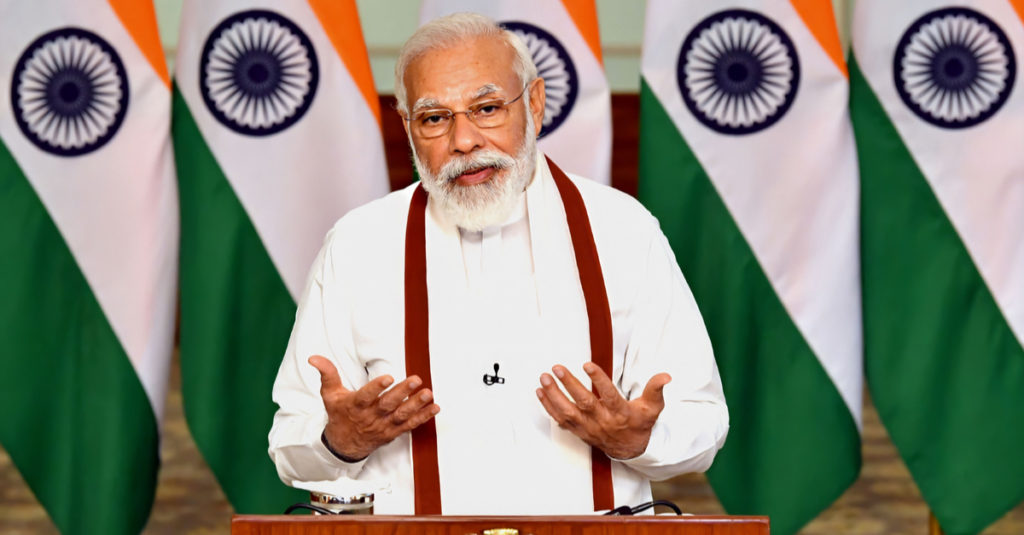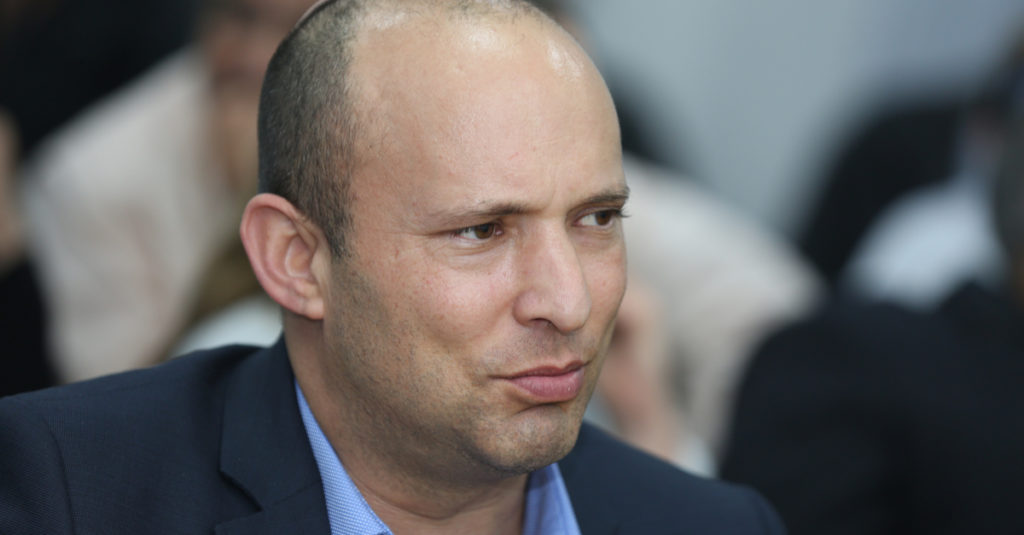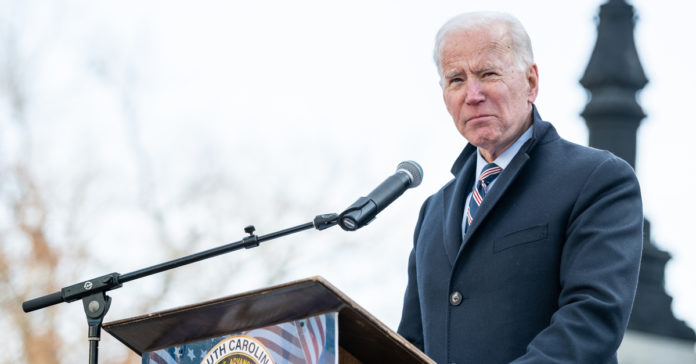From the U.S. withdrawal from Afghanistan to failing to stop law enforcement from targeting Muslims, Robert McCaw and Ismail Allison, from the Council on American-Islamic Relations, say President Biden’s first year in office has been a mixed bag for Muslims.
When President Biden officially took office at noon on January 20th, 2021, many American Muslims breathed a sigh of relief.
Although no one should have expected President Biden to become a champion for every issue important to our community, we were confident that the openly racist, xenophobic and Islamophobic rhetoric spread by President Trump would end — and that we would have an opportunity to advance positive change for our community and our country.
Now that President Biden has nearly completed his first year in office, it’s time to look back. Here are ten ways President Biden’s first year in office has impacted some of the policy issues important to our community:
Ending the Muslim and African bans
While campaigning, President Biden promised to end the Trump administration’s discriminatory Muslim and African travel bans. Immediately upon taking office, he fulfilled that promise by signing a proclamation overturning them. Although this was expected, it was an important and laudable first step. The Biden administration and Congress must still take action to repair the damage done to everyone impacted by the ban, such as diversity visa lottery winners who missed out on their chance to come to the United States.
Appointing Muslim public servants to federal positions
Subscribe to our newsletter and stay updated on the latest news and updates from around the Muslim world!
In his first year in office, President Biden appointed several American Muslims to high-level government positions — including Lina Khan as chair of the Federal Trade Commission, Sameera Fazili as National Economic Council Deputy Director, Reema Dodin as White House Office of Legislative Affairs Deputy Director, and Rashad Hussain as Ambassador at Large for International Religious Freedom.
Although the president did not fulfill his pledge to include Muslims at every level of his administration — there isn’t a single Muslim cabinet member — his other historic appointments were noteworthy and welcome. Rashad Hussain’s appointment to the Ambassador-at-Large position is especially important, given the number of Muslim communities facing Islamophobic persecution in China, France, India, Myanmar and so many other places around the world.
Signing the Uyghur Forced Labor Prevention Act
Like the Trump administration, the Biden administration declared China’s human rights abuses targeting Uyghur Muslims a genocide. Unlike President Trump, who reportedly expressed private support for the Chinese president’s anti-Uyghur policy, President Biden has consistently spoken out against the genocide.
Earlier this month, the president signed into law the Uyghur Forced Labor Prevention Act, a long-delayed piece of legislation that prevents American companies from importing goods made with forced labour in China’s Uyghur region.
Going forward, President Biden must increase the pressure on China to end the genocide. He must also resist voices who want to ignore China’s human rights violations in exchange for progress on issues like climate change.
Supporting the Combating International Islamophobia Act
China is not the only hotspot of anti-Muslim persecution and oppression. From France to Myanmar, Muslim communities are threatened by rising anti-Muslim sentiment.
To respond to this worldwide crisis, American Muslims have been calling for the establishment at the State Department of a Special Envoy to Monitor and Combat Global Islamophobia, akin to the position for monitoring and combating antisemitism (a position to which Biden appointed an individual who has made troubling Islamophobic and xenophobic statements.)
The Combating International Islamophobia Act, approved by the House in December, would do just that. Although the White House expressed support for the bill as it was being debated, it is important to note that President Biden could have established the position himself. This is what 23 members of Congress called on him to do earlier this year, as did the US Council of Muslim Organizations (USCMO).
President Biden must now strongly encourage the Senate to pass the legislation. If the Senate fails to do so, he must be willing to use his executive authority to create the position.
Ending the forever-war in Afghanistan
Back in April, the Biden administration announced that the 2,500 American troops stationed in Afghanistan would be withdrawn by September. Unlike prior presidents who considered and then failed to end America’s longest war, President Biden stuck to this commitment. In a speech delivered at the White House on August 16th, President Biden said that he “cannot and will not” ask American soldiers to “fight on endlessly in another country’s civil war.”

The president was absolutely right to end this war despite the complaints of armchair warriors on both sides of the aisle in Congress — and he should do the same in Iraq, where 2,5000 U.S. troops remain. America’s war in Afghanistan cost the lives of tens of thousands of Afghan men, women and children, and thousands of American soldiers.
While President Biden made the right choice in withdrawing U.S. forces, the administration’s execution of the withdrawal was, to put it mildly, disastrous. In addition to the chaotic withdrawal of U.S. personnel and Afghan refugees, a U.S. drone strike killed 10 Afghan civilians, including 7 children, in Kabul.
After an internal investigation of itself, the Pentagon held no one accountable for this war crime. The president has also failed to place a moratorium on drone strikes, which have consistently led to civilian bloodbaths in Muslim countries over the last 15 years.
Stalled police reform
President Biden has on numerous occasions expressed his desire to enact policing reform. He supported the George Floyd Justice in Policing Act, which would create a framework to prevent racial profiling by law enforcement agencies and restrict the use of unnecessary force and unjust tactics like no-knock raids and choke-holds.
However, after being approved by the House for the second time, the act again stalled in the Senate. Negotiations led by Senator Cory Booker and Senator Tim Scott collapsed, and there is no indication President Biden has gotten directly involved to try to restart the process. In 2022, President Biden should throw his weight behind an effort to secure a bill that can pass with 60 votes, even if it’s imperfect.
Some policing reform is better than no policing reform. If Congress is unwilling or unable to act, the president should use every available tool in his box of executive authority to combat police brutality.
Allowing National Security Overreach
So far, President Biden has failed to reign in the unconstitutional excesses that federal law enforcement agencies commit against American Muslims in the name of national security.
For example, the Justice Department has continued to steadfastly defend the so-called watchlist and no fly list, which have been disproportionately used to target American Muslims. In March, a federal appeals court ruled that the government can continue to place citizens on the watchlist without any notice and without giving them a chance to challenge the decision. Immigration officers have also continued their longstanding pattern of targeting Muslim travelers for secondary screening and warrantless cell phone searches and seizures at the border.
Under the Biden administration, the Justice Department has also continued the Trump administration’s effort to extradite and prosecute Julian Assange, the WikiLeaks founder, for his role in helping Private Manning expose evidence of war crimes committed by U.S. forces against Iraqi civilians. The individuals responsible for the atrocities Assange revealed, on the other hand, have faced no legal consequences for their actions.
Failing to appoint a White House liaison to the Muslim community
Although he appointed many American Muslims to some important positions, President Biden has not yet appointed a White House liaison to the American Muslim community, something which would be invaluable in helping the president understand the needs and concerns of Muslims, in the same way the White House Jewish liaison does for the Jewish community. By not appointing a liaison, the president is sending a message of indifference to the Muslim community.
Failing to address the persecution of Muslims in India
While President Biden has taken important steps to combat China’s ongoing genocide of Uyghur Muslims, Indian Muslims facing increasingly extreme persecution by the nation’s Hindu nationalist government have seen no support from the White House.

President Biden has maintained a close relationship with India’s far-right Prime Minister Narendra Modi, welcoming him to the White House on September 24th. Modi has consistently emboldened anti-Muslim violence, and was even banned from traveling to the U.S. for his enabling of the deadly 2002 Gujarat riots, which killed more than 1,000 people, most of whom were Muslims. Just one day prior to their meeting, police in the northeast Indian state of Assam brutally killed two people after ethnically cleansing 800 Bengali Muslim families and destroying two mosques.
None of this seemed to bother the president as he joked with Modi and said that the American-Indian relationship was “destined to be stronger, closer, and tighter,” a position likely stemming from his desire to create an Indo-Pacific alliance between the U.S., U.K., Australia, and India to oppose China’s regional ambitions.
Enabling human rights abuses by U.S. “allies” in the Middle East
From Israel to Tunisia to Egypt, the Biden administration has failed to fulfill its campaign pledge to put human rights and democracy at the forefront of its foreign policy.
When the Israeli military attacked Palestinian worshippers and protesters in Jerusalem during Ramadan, the Biden administration failed to take concrete action to stop the violence, allowing the attacks to spark another all-out shooting war between Israel and Hamas.
While Palestinian civilians in Gaza were being blown apart by Israeli precision-strike missiles, President Biden failed to publicly criticise the Israeli government’s human rights abuses. Even after the Israeli government destroyed a building used by international journalists, the U.S. failed to clearly or firmly speak out in public.
Although President Biden privately worked to end the fighting, his public expressions of support for the Israeli government enabled its violence and sent a horrible message to supporters of Palestinian human rights.

Later, in October, President Biden welcomed Israel’s new prime minister Naftali Bennett, an ultranationalist who described himself as “more right-wing than Netanyahu” and bragged about killing Arabs, to the White House. Just as he failed to press Modi on his crimes, the president failed to press Bennett on his. Instead, he said his administration would strengthen bilateral cooperation with Israel, and work towards getting Israel on the Visa Waiver Program.
President Biden has also continued the policies of his predecessors when it comes to supporting tyrannical governments in the Arab world. He has given the Egyptian military dictatorship most of their usual military aid money despite the ongoing oppression of civil society, mass imprisonment of political prisoners, and executions of dissidents.
Similarly, when Tunisian President Kais Saied dismissed the nation’s prime minister, shut down parliament and nullified the constitution, the Biden administration did not take any concrete action. Most recently, the State Department issued a remarkable statement welcoming Saied’s plan to draft a new constitution with purported input from select members of society.
Overall, President Biden’s first year in office represented a mix of progress and status quo for American Muslims. This is not a surprise. Again, no one should have expected President Biden to become a champion of our community, nor should our community ever count on any politician for our security.
Instead, the good and the bad of President Biden’s first year in office shows that our community can advance, and has advanced, positive change through engagement — but that there’s still much more work to be done.
Robert McCaw is the Government Affairs Director of the Council on American-Islamic Relations (CAIR), the nation’s largest Muslim civil rights and advocacy organization. He can be reached at rmccaw@cair.com. Ismail Allison is National Communications Coordinator at the Council on American-Islamic Relations. He can be reached at iallison@cair.com
This article first appeared on CAIR’s website.
Follow 5Pillars on Telegram here
Subscribe to our Newsletter here






















